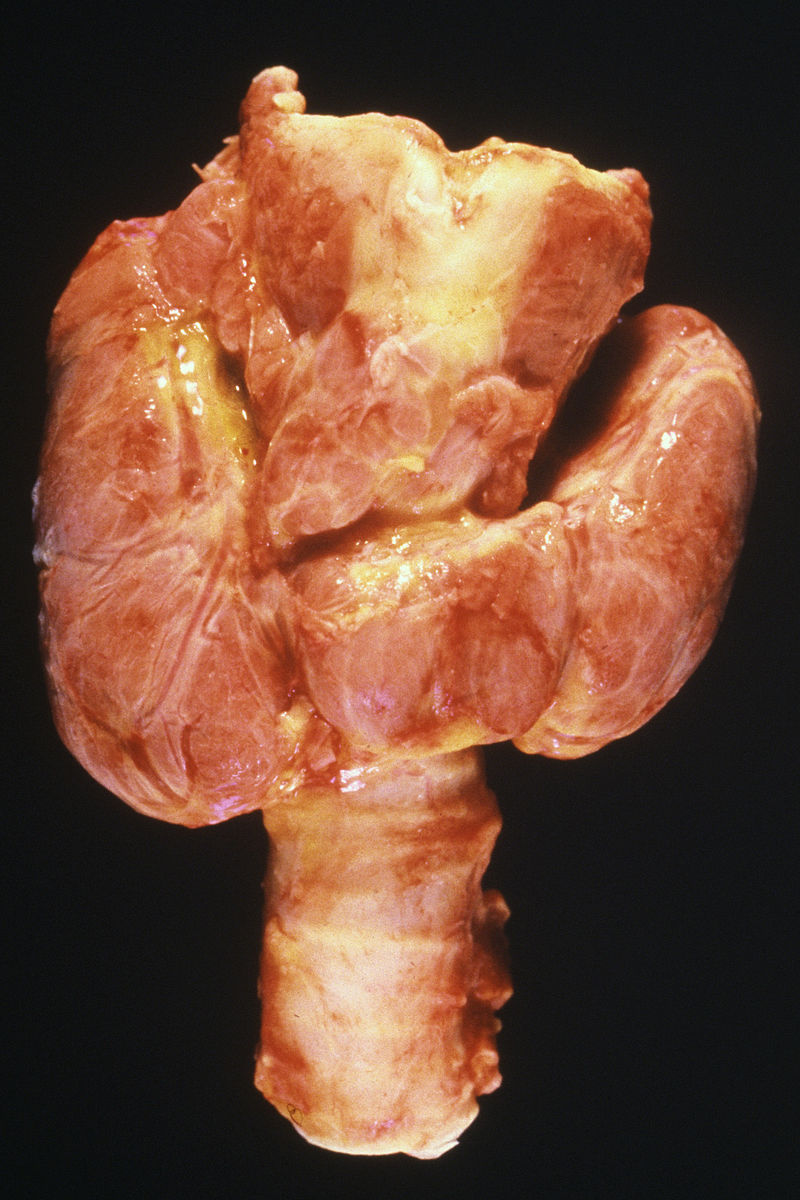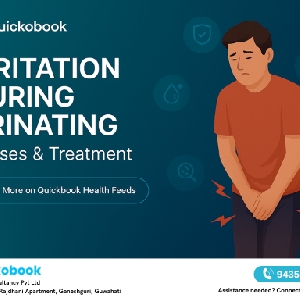Goiter
A condition that increases the size of your thyroid is called a goiter and may develop in anyone, but is more common in women. Sometimes, it affects the way the thyroid functions.
Symptoms
- difficulty swallowing or breathing
- dizziness when you raise your arm above your head
- coughing
- hoarseness in your voice
Causes
The main cause of Goitre is Iodine deficiency. There are other causes responsible for this, they are:
Graves’ disease
Graves’ disease occurs when your thyroid produces more thyroid hormone than normal, which is known as hyperthyroidism. The excessive production of hormones makes the thyroid increase in size.
Hashimoto’s thyroiditis
When you have Hashimoto’s thyroiditis, also known as Hashimoto’s thyroiditis, it predisposes thyroid to not being able to produce enough thyroid hormone, causing hypothyroidism.
The low thyroid hormone causes the pituitary gland to make more thyroid-stimulating hormone (TSH), which causes the thyroid to enlarge.
Inflammation
Some people develop thyrodities, an inflammation of the thyroid that can cause a goitre. This is different than Hashimoto’s thyroiditis. One example is viral thyroiditis.
Nodules
Solid or fluid-containing cysts may appear on the thyroid and cause it to swell. These nodules are often noncancerous.
Thyroid cancer
Cancer may affect the thyroid, which causes swelling on one side of the gland. Thyroid cancer isn’t as common as the formation of benign nodules.
Pregnancy
Being pregnant can sometimes cause the thyroid to become larger.
Types of goitres
Goiters have many causes. As a result, there are different types. These include:
Colloid goitre (endemic)
A colloid goitre develops from the lack of iodine, a mineral essential to the production of thyroid hormones. People who get this type of goitre usually live in areas where iodine is scarce.
Nontoxic goitre (sporadic)
The cause of a nontoxic goitre is usually unknown, though it may be caused by medications like lithium. Lithium is used to treat mood disorders such as bipolar disorder.
Nontoxic goitres don’t affect the production of thyroid hormone, and thyroid function is healthy. They’re also benign.
Toxic nodular or multinodular goitre
This type of goitre forms one or more small nodules as it enlarges. The nodules produce their own thyroid hormone, causing hyperthyroidism. It generally forms as an extension of a simple goitre.
How is goitre treated?
Your doctor will decide on a course of treatment based on the size and condition of your goiter, and symptoms associated with it. Treatment is also based on health problems that contribute to the goiter.
Medications
If you have hypothyroidism or hyperthyroidism, medications to treat these conditions may be enough to shrink goitre. Medications (corticosteroids) to reduce your inflammation may be used if you have thyroiditis.
Surgeries
Surgical removal of your thyroid, known as thyroidectomy, is an option if yours grows too large or doesn’t respond to medication therapy.
Radioactive iodine
In people with toxic multinodular goitres, radioactive iodine (RAI) may be necessary. The RAI is ingested orally, and then travels to your thyroid through your blood, where it destroys the overactive thyroid tissue.
Home care
Depending on your type of goitre, you may need to increase or decrease your iodine intake at home.
When goitre is small and doesn’t cause any problems, you may require no treatment at all.









Comments (0)
No comments yet. Be the first to share your thoughts!
Leave a Comment